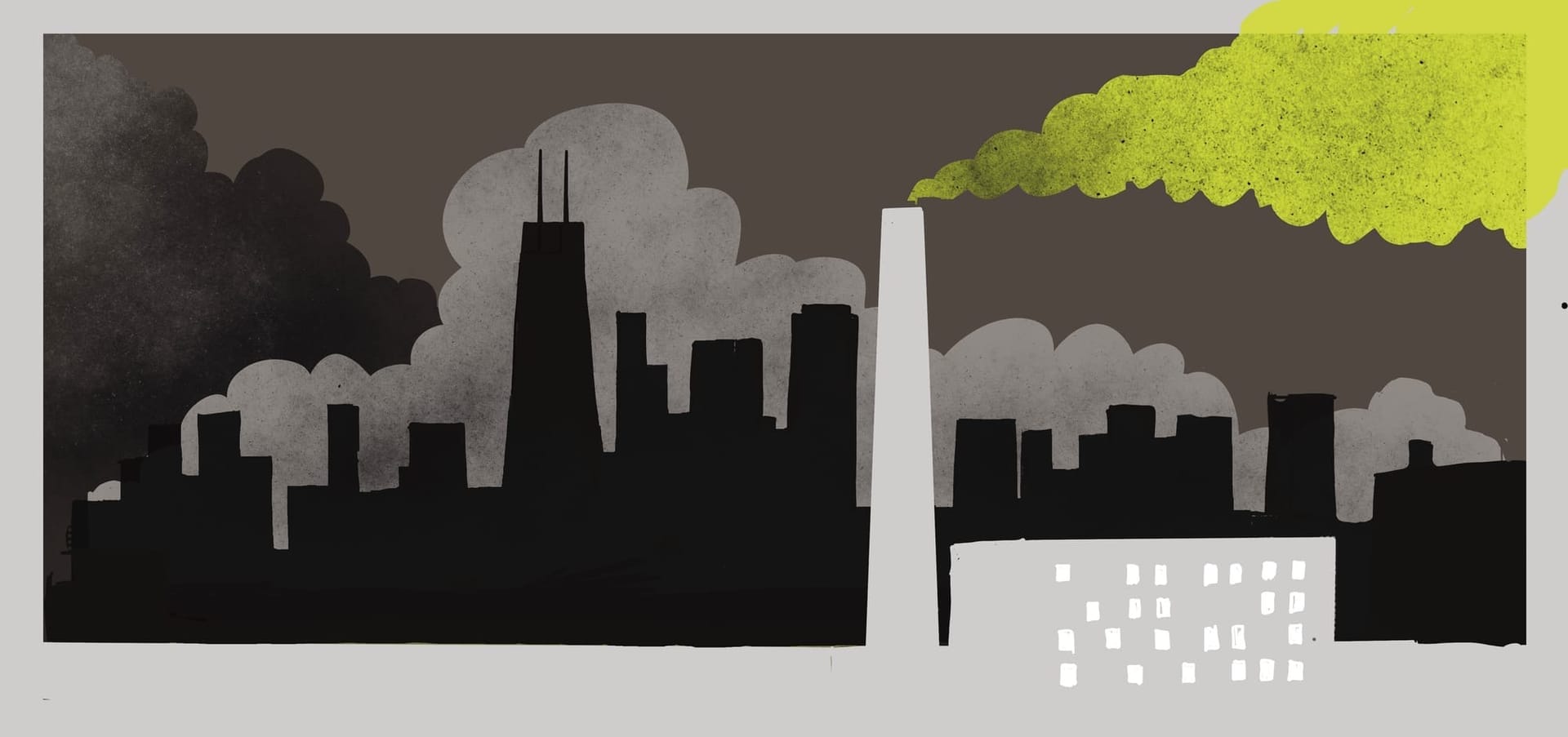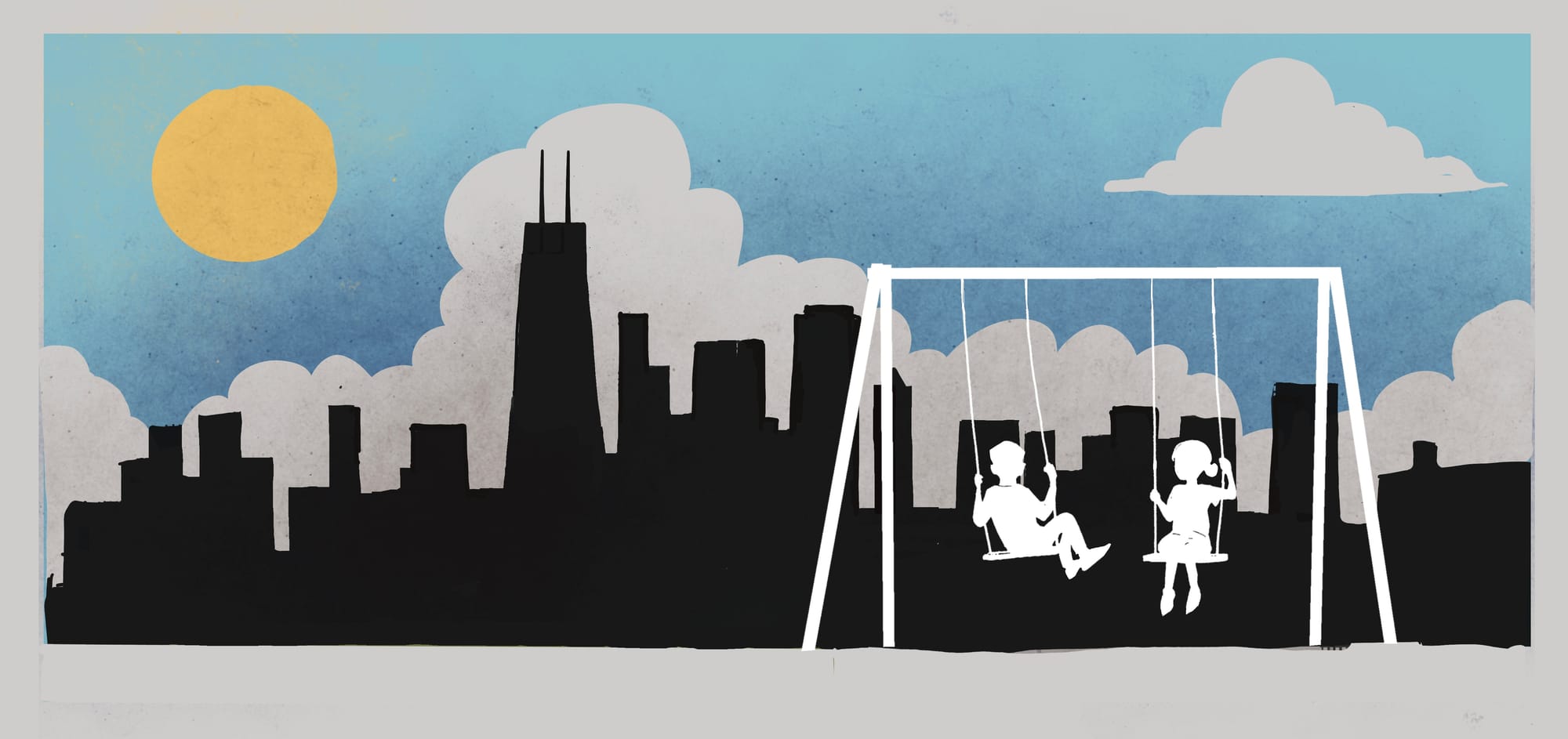Gutting Environmental Justice

Just hours before Earth Day, Alexa Burnett and her Chicago-based EPA environmental justice team received notice they’d be fired.
Everyone should have access to clean air and water. As part of the division of Environmental Justice, Community Health and Environmental Review (EJCHER), Alexa's 20-member office examined how communities of color, low-income individuals and people living in rural areas suffer disproportionately from environmental damage.
Alexa is a Northwest Sider and a member of American Federation of Government Employee union (AFGE). Raised in Norfolk, Virginia, she witnessed crumbling public infrastructure, the repercussions of climate change and the local effects of environmental racism—like elevated asthma rates due to coal dust pollution in historically Black neighborhoods.
Two years ago she moved to Chicago’s Logan Square neighborhood for the EPA job, the perfect opportunity to apply her skills in environmental science with her passion for social justice.
“Working on environmental justice issues,” she says, “was my dream job.”
Voices in Change
Nationwide, 71% of African Americans live in counties that violate federal air pollution standards, compared to 58% of non-Hispanic white residents. Chicago’s legacy of environmental racism is a microcosm of this national trend.
For example, our city is notorious for its “toxic donut,” a term coined by environmental justice leader Hazel Johnson for her Southeast Side neighborhood surrounded by landfills, industrial facilities and polluted waterways. (Learn more about the Hazel Johnson Cumulative Impacts Ordinance). In Pilsen, it took years of community outcry and organizing to finally shut down the Fisk coal-fired power plant.
EJCHER was created to address precisely these types of inequities and give the affected neighborhoods a voice in change. Alexa and her team collaborated with local organizations in cities like East St. Louis downstate and Flint, Michigan, places with dangerous levels of air pollution and toxic drinking water. She hosted listening sessions with residents and shared their health and safety concerns with the feds and state EPA offices.

She also managed an array of social justice projects like EJSCREEN, an environmental justice tool that cross-referenced pollution data with socioeconomic factors. Its data helped scientists assess how federal decision making about environmental issues was impacting vulnerable communities and empowered residents with information.
With one stroke of the pen, Trump’s EPA erased EJSCREEN and the years of research and analysis it took to create it. In fact, the administration has erased all environmental justice references from EPA and CDC websites.
Speaking on behalf of her union, the AFGE, Alexa's disappointment and exasperation are palpable as she candidly tells of the layoffs and inevitable environmental consequences. “They already gave me notice,” she says with a shrug, “it’s important people know the truth and feel empowered to do something to protect themselves and others.”
Reflecting on her tenure at EPA, Alexa brightens when talking about her role helping to create the Environmental Justice Academy (EJA). The program nurtured emerging environmental leaders–high school students, retirees, farmers, clergy, social justice activists and others–in long-neglected communities like Dayton, Ohio.
Participants have gone on to advocate on issues plaguing their communities such as brownfields, stormwater flooding and food deserts and to conduct research, champion change and teach others how to fight for cleaner, better communities. DOGE axed this program, too.
In just a few weeks, in fact, the Trump administration took steps to eliminate all EPA environmental justice offices and positions across the country and has cut $2.4 billion in funding and canceled $20 billion in Biden-era climate grants, many of which sought to safeguard people most at-risk from pollution.

The Real Price of “Cost-Saving” Measures
Alexa’s team was notified of their firings April 21, and were provided a last day to report to work at the end of July. While there had been hope that courts might block firings, a recent Supreme Court ruling clears a path for massive layoffs. Major damage has been done and will likely continue. The future for federal workers is more uncertain than ever.
Continuing to speak on behalf of AFGE, Alexa says her workplace changed immediately after the inauguration. Her office was ordered to freeze communication outside their agency: no conversations with state EPAs, grantees, the nonprofits with whom they collaborated, no one.
“It instantly became impossible for us to do our jobs,” Alexa recalls. “Our partners had no idea what was happening. Especially heart wrenching for me was losing trust we had worked so hard to build in vulnerable communities.”
The new administration has twisted a well-working team in knots. With added incentives to resign and retire early, employees are leaving the agency in droves.
“Our workplace has become infantilizing and punitive,” she says, shaking her head. “Every minute is audited, lunch breaks monitored. A system installed at our computers sends an alarm whenever we undock the computer from our desk. We are afraid of retaliation if we speak up. I feel as though I’ve faced additional scrutiny and even punitive action for being an active and outspoken union member. Employees' medical needs and conditions are being ignored. We are all just so stressed and frustrated all the time.”
She is enraged that “our country is being fed the false narrative that federal employees are lazy and unmotivated. I have never in my career worked with a team of more expert and devoted people. And now? My team is required to sit at a desk eight hours a day, five days a week doing absolutely nothing. How is this smart or efficient? How is this ending waste and fraud? My dream job has become an absolute nightmare.”
Alexa bristles at the notion that DOGE was designed to save taxpayer money. “Ongoing litigation means the feds likely will face astronomical costs for canceling all these grants, for wrongfully firing employees,” she says. Add in steps the agency has taken to unravel critical environmental regulations, and we can expect to see increases in cardiovascular disease, cancers and asthma and other respiratory issues down the road. The human and financial toll will be devastating.
She points out that the impact will be felt in other ways, too. DOGE has snatched funds already awarded for projects run by grassroot nonprofits. Since most spend out of pocket, expecting to be reimbursed with grant funds, these cuts will destroy smaller organizations that won’t have the legal capacity to fight back.
Reclaiming Power
On July 3, the EPA placed 139 employees on administrative leave, including more than 30 in Chicago’s Region 5 headquarters, after they signed a “declaration of dissent.” The letter was a gutsy public criticism against an agency that is abandoning its mission to protect human health and the environment. Activists rallied at Federal Plaza July 7 to protest the agency’s attempt to quash dissent.
But Alexa vows that she isn’t giving up. She has joined Indivisible Chicago Northwest Side as the Zillennial Event Coordinator to build momentum for change. “It’s so easy to be disconnected from our neighbors,” she explains. “But we need each other now more than ever. It’s on us to pay attention, know the hazards we might face, take action, help one another.”
And she plans to return to school to study public health so she can “be ready, armed with science-based solutions to help pick up the pieces, when, hopefully, this awful chapter is behind us.”
Read more Federal Layoff Stories by Amplify:
Local Resources & Ways to Support
If this story spoke to you, please share with a friend and check out ways to help or find help below!
Want to Be a Helper?
There are many ways to support federal workers: monthly meetups, volunteer opportunities and more.
Need a Helping Hand?
From unemployment resources to free career advising services, learn about resources for federal workers and contractors on Chicago's Northwest Side.
Bonus List
Local Resources & Actions: The Environment
From environmental risk assessments to interactive maps with sustainable businesses, find local resources, disaster preparation lists and actions everyone can take for a safer, healthier environment.
Add Your Voice to the Story!
Do you–or did you recently–work for a federal agency?
Do you want to give insight into what it’s like, or how you’re dealing with the assault on federal workers?
Click here to share your story in an anonymous form.
We will share your thoughts on our website, with our members and with local elected officials!
Subscribe to our newsletter.
Be the first to know - subscribe today






